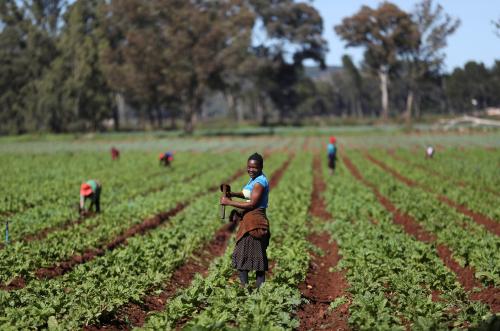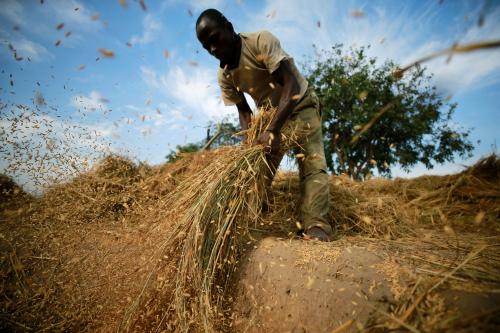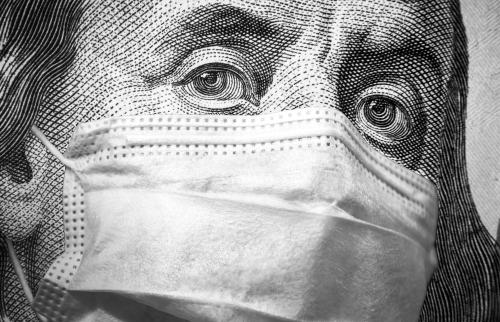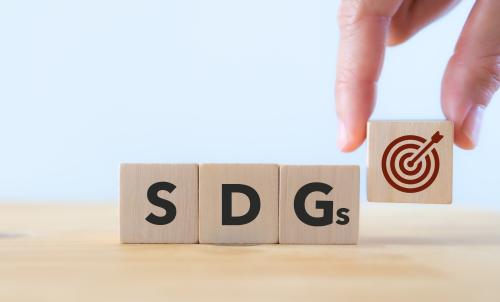Even before the onset of the coronavirus, about 670 million people in Africa, or half the continent’s population, were facing food insecurity, out of which 250 million people were severely food insecure. This problem has been exacerbated by the spread of COVID-19 and subsequent lockdown measures that introduced serious economic and food price shocks. Combined with other disasters, such as the locust plague that has ravaged the Horn of Africa, the risk of food and income security has become more pronounced. Border restrictions introduced to slow the spread of the virus are also substantially impacting the production, transportation, and trade of food across the continent.
These trends have major implications for economic growth and food security in Africa. About 23 percent of the continent’s GDP comes from agriculture, and 60 percent of its economically active population live on agriculture, according to a McKinsey report. As a result, COVID-19 has been felt acutely in the wallets and the stomachs of many Africans since the outbreak began.
To examine this impact, researchers from the Brookings Global Economy and Development program have been analyzing World Bank COVID-19 tracking data for Nigeria. The World Bank gathered this data through a phone survey that covered 15,000 households in rural and urban Nigeria and aimed to understand how households and firms are dealing with income and food security during the pandemic. Our preliminary examination shows that, in Nigeria—the most populous country in the region and one of the continent’s strongest economies—the pandemic has caused a serious strain on food and income security.
Figure 1 shows that at least 70 percent of both urban and rural respondents have experienced a reduction in income since the onset of the pandemic. Moreover, the share of households whose income remained the same is much smaller in rural areas than urban ones, suggesting greater income volatility in rural areas. According to the Overseas Development Institute (ODI), this trend could be due to the reliance of rural households on the flow of remittances from their families in urban areas: As people lose their jobs in urban areas, the loss of income is also felt by their families. Furthermore, rural households tend to rely on selling high-value perishable items both in urban areas and informally across borders. Restrictions on transportation, restaurant closures, and border shutdowns are thus taking a toll on the income of rural households. A larger share of urban inhabitants also work for the government or public enterprises, with steady incomes that reduce their economic exposure to the pandemic.

Figure 2 shows that more than 70 percent of respondents in both rural and urban areas of Nigeria are facing food insecurity, with a slightly larger percentage of urban respondents facing food insecurity than rural respondents. World Bank data shows that poverty in Nigeria is a distinctly rural phenomenon: Indeed, 52 percent of the country’s rural population was classified as poor in 2016 versus 16 percent of the urban population.

Seeing the substantial effects of the pandemic on both rural and urban households in Nigeria raises the question of whether other African economies must also be going through the same experience. Nigeria had one of Africa’s fastest-growing economies up until 2014, but was also severely affected by the most recent oil price crash. More research is needed to understand how African economies are faring in the face of the ongoing health and economic crisis.
For more on food security in Africa, see “Economic impact of COVID-19: Protecting Africa’s food systems from farm to fork” by Jennifer Blanke and “Protecting food security in Africa during COVID-19” by Simeon Ehui.







Commentary
Figures of the week: The effect of COVID-19 on food and income security in Africa
July 9, 2020